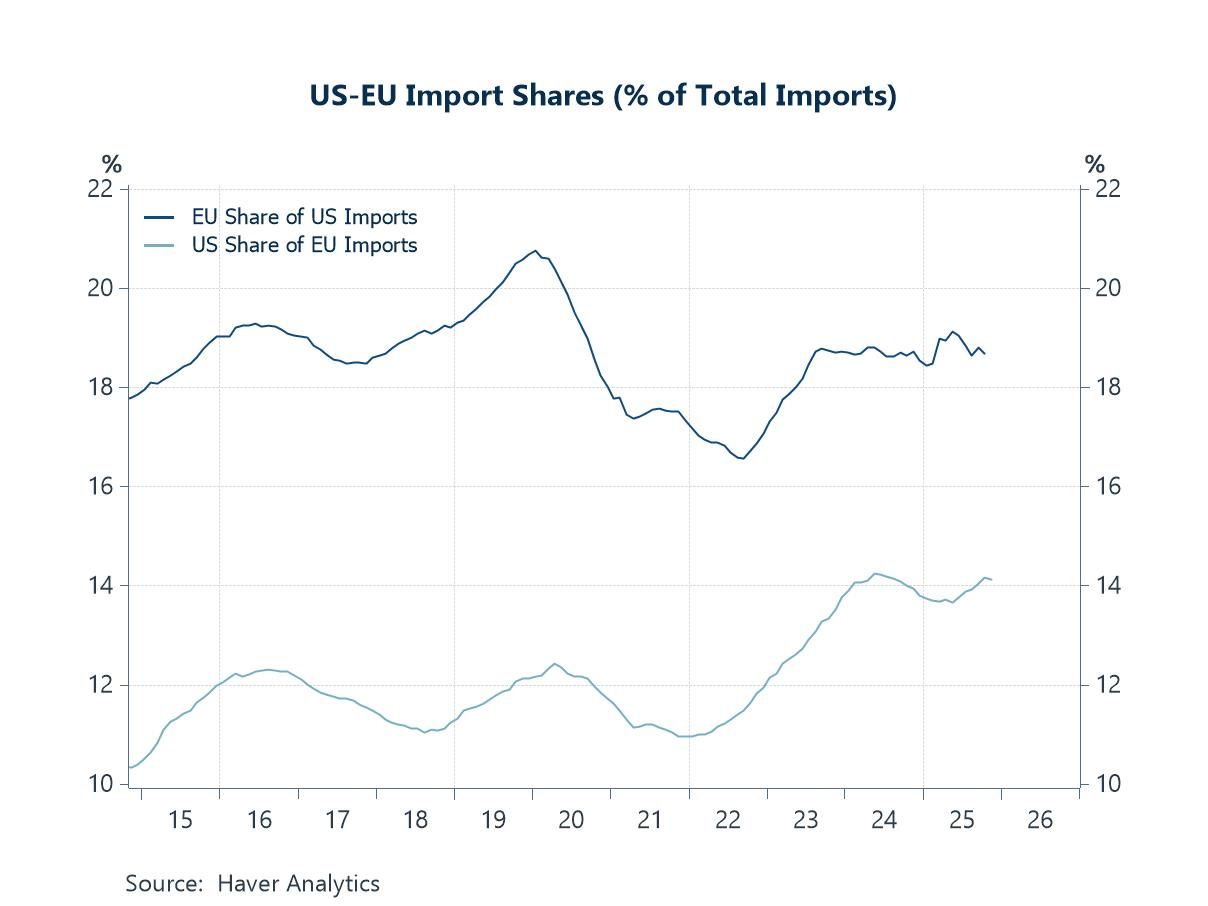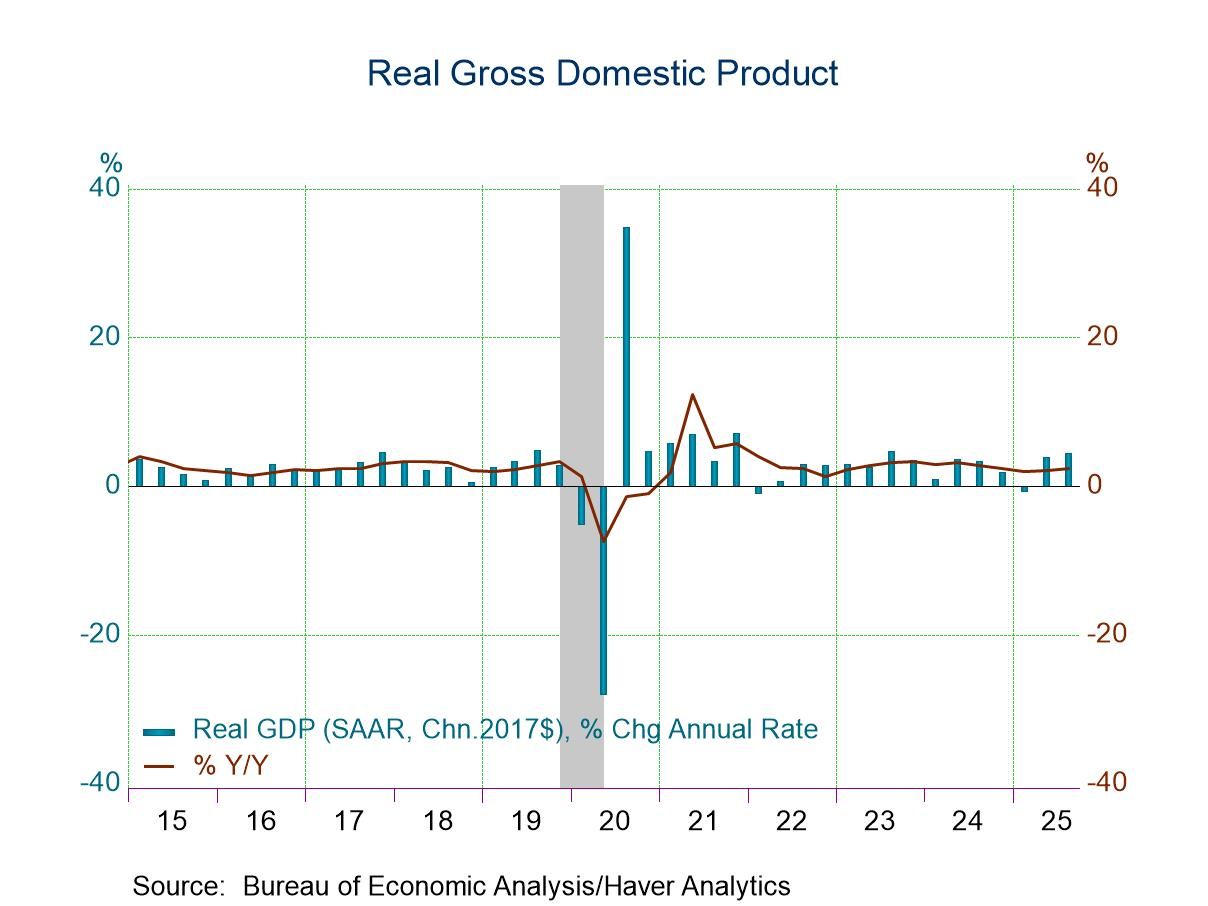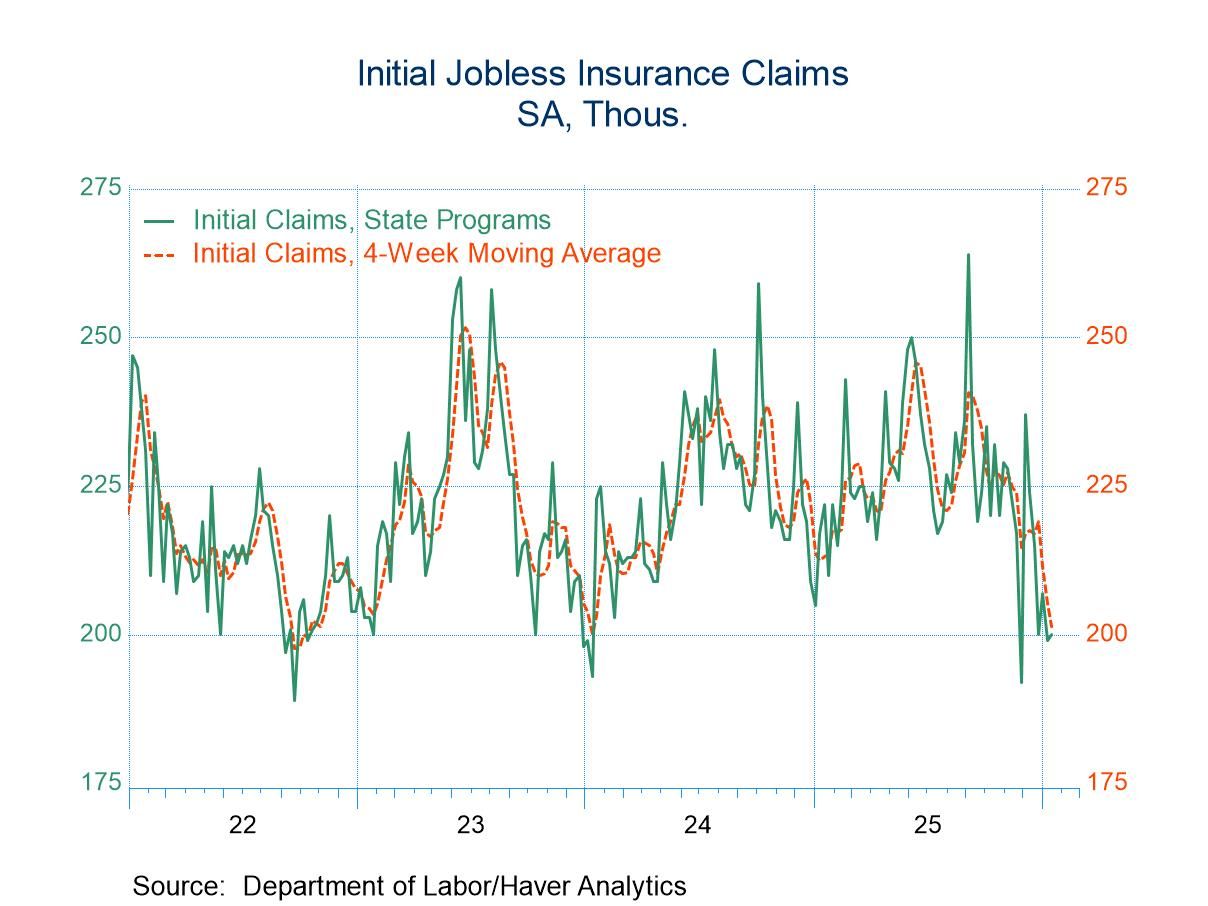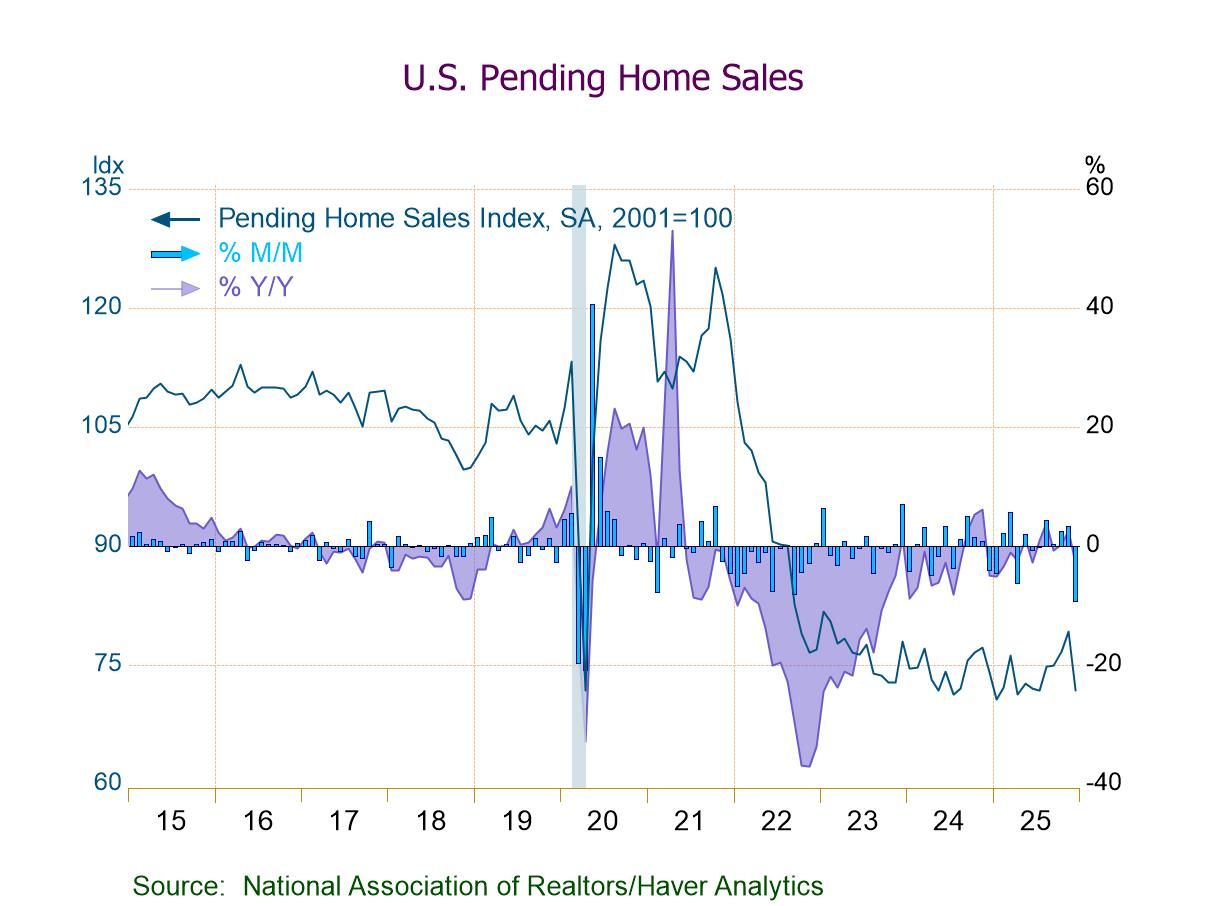Germany’s ZEW Survey Respondents Improve Their Assessments

Economic situation- The ZEW index for June 2025 showed significant improvement in the euro area with the index moving up to -30.7 from -42.4 in May. At that level, the queue percentile standing on data back to 1992 is at its 47.5 percentile, close to its median for the period (median occurs at a ranking of 50%). For Germany, there was an improvement from -82 in May to -72 in June; this sets its standing at about its 20th percentile, much weaker than for the euro area overall. For the United States, there was a more modest improvement in June to -17.3 from May’s -25.4; June marks a 25.8 percentile standing, roughly in the lower quartile of its historic queue of data over the last 13 years. Economic assessments for these three reporters range from quite weak to just slightly below ‘normal.’
Macro-expectations- Macroeconomic expectations became sharply stronger for Germany in June; they moved up to a +47.5 reading in June from +25.2 in May, a reading that already had improved from -14 in April. Germany is on a very hot run in terms of expectations that are improving at a much faster pace than the current economic situation. Germany’s macroeconomic expectations have a 72-percentile standing, in the top 30% of their historic queue of data, quite a solid result. This contrasts sharply with the United States where there was also an improvement in June to -41.9 from -48.2 in May. The U.S., like Germany, had undergone a substantial improvement in May compared to April since April's reading had been -71.5. However, the June reading for the U.S. improved month-to-month by only a modest amount and has only an 8.5 percentile standing, the lower 10% of its historic queue of data.
Inflation expectations- Inflation expectations remain weak in the euro area and in Germany in June while they've grown to be quite strong in the United States. Germany saw slight increases in inflation expectations in the month, but they are still at weak levels and the 20- to 25-percentile region on a queue-standing basis. For the U.S., inflation expectations have cooled slightly from a reading of 75.8 in April to 70.7 in May, to 60 in June, a clear de-escalation of inflation expectations; however, still leaving a high 81.1 percentile standing for inflation expectations in the U.S.
Short-term rate expectations- Short-term interest rate expectations in the euro area rose after falling back in May; in the U.S., they edged only slightly higher after also having stepped back in May. However, both the U.S. and the euro area have extremely weak queue standings, both of them in the lower 15-percentile of their respective ranges. Short-term interest rates simply are not expected to rise, and they obviously are more likely to be cut on readings like these.
Long-term rate expectations- Long-term expectations for Germany and the United States show German expectations have waffled, moving from 23.3 in April, down to 6.9 in May and bouncing back to 16.8 in June to produce a queue standing in its 22nd percentile. In the U.S., long-term rate expectations were at 48.5 in April; they fell to 32.1 in May and rebounded to 39.0 in June to reach a queue standing at its 43.6 percentile, slightly below its median standing for the period (remember that median standings occur at a queue percentile standing of 50%).
Stock market outlooks remain weak- Stock market expectations show weak standings everywhere. The euro area saw a marginal technical improvement in June compared to May; Germany saw a small improvement in June compared to May, whereas May had seen a more significant increase compared to April. The U.S. continues to log negative readings for equities. Germany and the euro area show standings for the stock market in their respective 15-percentile ranges, whereas the United States’ reading is in its 7th percentile. All of those readings are weak.

Summing up These readings all presaged the attack on Iran by Israel. I'm sure that attack should be a significant policy event, but so far, the impact on oil prices has been relatively muted, but, of course, that's something that could change. Quite apart from any destruction of oil fields that might occur there's also the potential for Iraq and its Houthi ally could attempt to block or disrupt the flow of oil through the Straits of Hormuz where a large share of global exports enters the global distribution system. So, it's hardly sufficient to say, ‘so far so good,’ or to argue that the war has not affected anything. It's really not clear where this conflict is going to go except that right now Iran is really being beat up very badly; it has no air defenses. Israel is clearly in the driver's seat and, one press report I saw, described the Israeli air campaign as only about half-over. While Iran is looking to slow down or stop the attack, it looks like Israel has a much grander plan underway and that's likely related to its desire to have a much more substantial negative impact on Iran's nuclear capabilities and its developmental and research site that is housed under a very inaccessible mountain. That also suggests that Iran's desire to quickly end the hostilities is an act to try to protect its existent nuclear operations rather than a call for mercy.
Robert Brusca
AuthorMore in Author Profile »Robert A. Brusca is Chief Economist of Fact and Opinion Economics, a consulting firm he founded in Manhattan. He has been an economist on Wall Street for over 25 years. He has visited central banking and large institutional clients in over 30 countries in his career as an economist. Mr. Brusca was a Divisional Research Chief at the Federal Reserve Bank of NY (Chief of the International Financial markets Division), a Fed Watcher at Irving Trust and Chief Economist at Nikko Securities International. He is widely quoted and appears in various media. Mr. Brusca holds an MA and Ph.D. in economics from Michigan State University and a BA in Economics from the University of Michigan. His research pursues his strong interests in non aligned policy economics as well as international economics. FAO Economics’ research targets investors to assist them in making better investment decisions in stocks, bonds and in a variety of international assets. The company does not manage money and has no conflicts in giving economic advice.




 Global
Global

